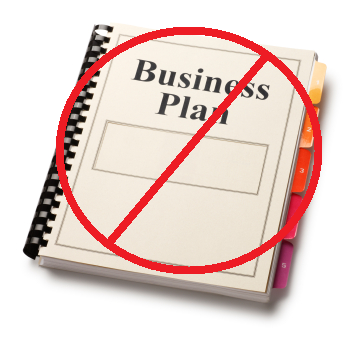In a recent post, we talked about the different methods you can use to find wholesale properties (properties you intend to flip). Flipping properties can be a very profitable source of cash flow when done correctly. However, there are a few key house-flipping mistakes that you should avoid in order to keep yourself out of hot water.
What exactly does it mean to flip a property?
Real estate wholesaling involves finding a property that is either for sale currently or that an owner intends to sell in the near future, renovating it (adding value), and then selling for a higher price than what you paid. Renovating a property could be as simple as repainting and updating old decor and appliances to advanced renovations such as adding new rooms or doing a complete remodel / redesign.
It sounds pretty simple, however, there are plenty of ways a house flip can go wrong.
Today, I want to outline 5 common mistakes new investors make and how to avoid them.
Not doing your market research

In order to perform a successful flip, you must understand the local housing market. You can find an amazing property at a low price, perform amazing renovations, and still have a hard time finding a seller.
This could lead to you having to sit on a property for an extended period of time, leaving your cash tied up when you could be using it to invest in your next flip.
When you are scouting properties to flip, look at the local market and see how homes with a similar structure/floor plan are selling and for how much.
Find out how long the properties that are for sale have been on the market.
Have they gotten any offers? If so, for what amount?
Once you have answered the above questions you can determine if the property you are looking at can be renovated and sold at a comparable price to what is currently being offered (demand).
The last thing you want to do is purchase a property and put tons of money into and not be able to turn a profit.
Not having enough capital

In order to successfully renovate a property, you will have to put money into it to bring it into a sellable condition. It is important that you do your due diligence by thoroughly analyzing a property to determine what repairs are needed and if there are any hidden issues that could prevent a buyer from purchasing.
Renovation costs could vary widely depending on the existing condition of the property and the types of renovations you plan to make. You don’t want to spend all of your capital on cosmetic changes such as countertops, appliances, flooring, etc to late find out that you have a mold problem or a costly structural issue that needs to be addressed.
If this does occur, you could end up stuck with an unsellable property and all of your cash tied up in it.
Before beginning renovations, make sure that you have a reserve of cash just in case the unpredictable occurs. Believe me, the unexpected will occur and I want to make sure you have the cash available to take care of it.
Lack of a plan

Just like a business, you should have a rough business plan to determine if the flip is worth it.
You’ll need to know what types of margins you will be dealing with. You will want to make sure you don’t overpay for the property on the frontend and that you have a timeline so that you can make all of the repairs, get the property inspected, listed, and sold in a time-sensitive manner.
Your tentative plan doesn’t have to be rock solid, however, it should be as accurate as you can possibly make it. This will ensure that you stay within budget leading to a profitable flip.
A few things you should include in your plan:
A budget detailing the base price and expected sale price based on market research.
Cost of tentative repairs/renovations. (Having price quotes are well recommended.)
A schedule outlining the timeline of repairs. (Your chosen contractor should be directly involved with this.)
Doing the above will give you peace of mind and a clearer projection of your expected profit.
Lack of property insurance

When dealing with properties with an extended renovation timeline, having property insurance can protect you from any natural disasters that could completely derail your project, your budget, and your sanity.
You might take a small of a hit on the profit side, but this cost will buy you peace of mind. You wouldn’t want to purchase a property only to have it destroyed in some freak electrical fire during renovations.
Over/underpricing your listing

If you’ve done all of the steps above this shouldn’t be an issue, however, sometimes it will be. Pricing is important, if not the most important aspect of flipping a property. If you undervalue your property, you could be leaving a lot of potential profit on the table and selling yourself short in the process. If you overvalue your listing, you may end up sitting on the property for an extended period of time. Each month your property goes unsold directly costs you come of your profit.
To avoid this, make sure you do your due diligence in the planning stage of your project. Pay close attention to how the market is doing and the recent homes sold in the area.
You want to make sure you price your newly renovated property just right.
A quick tip: You can also network with local real estate agents to get a gauge for your properties’ value/demand. You may be able to get a buyer under contract before renovations are even complete!
Conclusion:
Flipping properties can be a fun adventure and a great way to invest and multiply your cash. Make sure you pay attention and do your research before diving into a property and you will be just fine.
If you want to learn more about flipping/wholesaling be sure to attend Wealth Connect 2020. We will be covering this topic extensively.
I also have a book covering the process of finding, flipping, and fixing properties extensively.
Click here to learn more

We’re a group of volunteers and opening a new scheme in our community.
Your web site provided us with valuable info to work on. You’ve done
an impressive job and our whole community will be thankful to you.
Greetings! I’ve been following your weblog for a while now and finally got
the bravery to go ahead and give you a shout out from Humble Tx!
Just wanted to tell you keep up the great work!